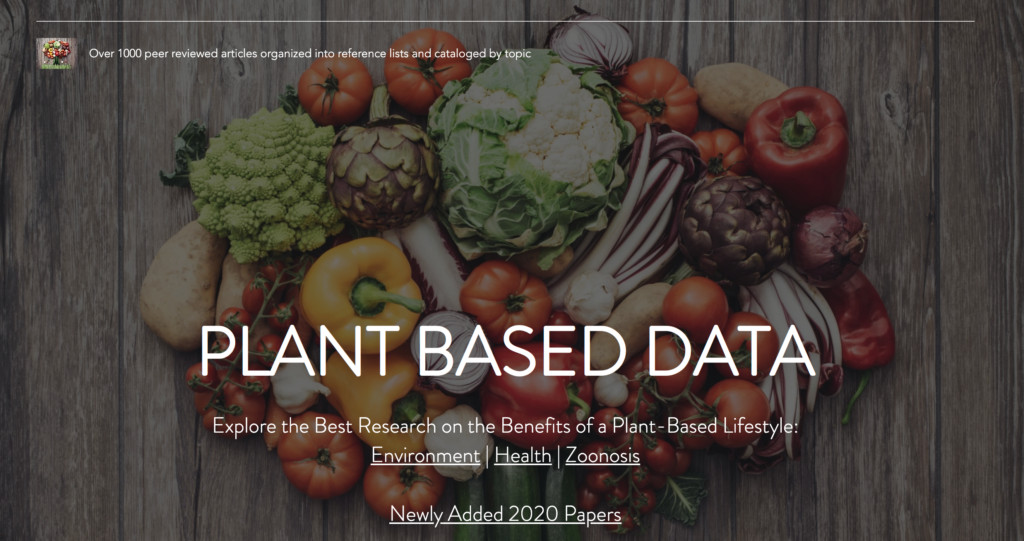The food system crisis is one of the defining issues of our time. While still not recognised for its role broadly, this crisis reflects the deep connections between public health, climate change and the growing inequality in the world.
One crucial argument revolves around how the world will feed a growing population of almost 10 billion by 2050 in a way that is environmentally sustainable and nutritionally beneficial for all humans.
In this interview, 50by40 speaks with Nicholas Carter and Tushar Mehta, environmental experts and co-founders of PlantBasedData.org. Plant-based Data is an online repository with over 1000 peer-reviewed articles organised into reference lists and catalogued by topics. According to Nicholas and Tushar, the project was developed to make the best research on plant-based lifestyle easily accessible to everyone, everywhere, scientist or not, without the tedious work of having to sort the research works individually.
Nicholas Carter is an environmental researcher focused on the scientific links between agriculture and planetary health. Tushar Mehta practices emergency medicine and has interests in environmental issues, as well as international development, poverty, and health in developed and developing countries.
This interview has been edited for clarity.

50by40: Nicholas, in your article recently published on A Well-Fed World, you said a change in how we farm is not only necessary but inevitable. Can you elaborate?
NC: When I said that, I meant a farming system built on a process of feeding grains to livestock where animals require 83% of all farming land and only return about 18% of calories. The process is very inefficient when you look at it in terms of the feed conversion ratio (a ratio measuring the efficiency with which the bodies of livestock convert animal feed into the desired output) which is a fundamental concept when you talk about the environmental impact of animal agriculture and the impact of animal agriculture on food security.
We can’t talk about food security without talking about the immediate loss you have when you give any feed to animals – the animals get processed and, when eaten, return about 10% on average for calories in terms of meat. This is inefficient. So when I stated that a shift from this farming system is not only necessary but it’s inevitable, what I mean by that is, hopefully proactively, it’s something we can change. If not, we will have to change it reactively because of the issues with climate change, soil erosion and depletion, droughts et cetera. But in the end, we will have to change it no matter what.
50by40: In the article, you also mentioned the concept of veganic farming. Can you briefly talk about it?
NC: Yes. Veganic farming is organic agriculture that is free from farmed animal inputs or byproducts. I mentioned this not that the whole world needs a shift to veganic farming but we also don’t just want to shift from farming animals to doing vast rows of monocultures because that just won’t be sustainable at all. We need to think of the most sustainable forms of farming we have but also what can feed 10 billion people which are expected to be on earth by 2050. Stock-free farming which is another word for veganic farming is a type of practice that has been done for hundreds of years. This can be done…not necessarily from an ethical standpoint but from a standpoint of having fewer inputs to the farm using green manures and different compost mixtures to feed the soil. In many ways, this is the closest thing to farming that imitates nature.
50by40: Dr Tushar, will a plant-based diet save the world from the different challenges it is facing right now? Is a Plant-based diet the answer?
TM: Well, a plant-based diet is a huge part of the answer. We have talked about feed conversion ratios. We have talked about the small amount of land giving the majority of the protein and calories that the world consumes compared to the vast amount of land used for animal agriculture. Much of the world’s forest, ecosystem and natural habitats have also been destroyed by replacing natural ecosystems with animal agriculture. These things show that if we shift to a plant-based diet we are using less land, less water and we can save so much of the environment. It also means we can feed 10 billion people by using less land than we are currently using. Finally, we can let a lot of the land that is being occupied by humans to grow back into natural ecosystems.
Farmland is not a natural thing. Farmland is created by humans, who cut down the forests or take over the natural ecosystem to make the farm or to make pasture. So if we allow the farms to rewild, or become natural ecosystems again, that’s a win for environmental sustainability and biodiversity. So, a plant-based diet is a huge part of the answer. To buttress Nicholas’ point, we can’t just have big industrial monoculture, that is also going to cause a lot of chemical use, loss of nutrients from the soil et cetera. If we do veganic farming where you use organic principles, green manure and all the other things that Nicholas talked about, then even plant-based agriculture can become more sustainable than it is right now.
50by40: Aside from environmental sustainability, is a plant-based diet beneficial for the health of humans?
TM: Yes. Reputed journals like the Lancet have come out to speak about how there are co-benefits for the environment and human health when we switch to a plant-based diet. There is a very large body of evidence which you can see on plant-based data that a healthy plant-based diet reduces cardiovascular disease, diabetes type two, certain types of cancer, and a few other diseases as well. It’s not only that people can live longer, but also people can live healthier. People can use fewer medications, and throughout their lives, enjoy a better quality of life. Modern medicine can make you live a long life now even if you are very unhealthy, so it’s becoming more of a quality of life issue.
For developing countries where people don’t have access to all the medical care we do in developed countries, a healthy plant-based diet can be even more important for improving health. A plant-based diet is excellent for reducing diabetes which is a major problem worldwide. Now, I want to specify that it is not just about plant-based diets. If people are eating a lot of junk foods, fried foods, refined carbohydrates, sugars and all such things, they are not going to get significant benefits from plant-based diets. We need to focus on whole foods, low fats and plant-based. Eating a diet based on foods that are minimally processed, and having different food groups such as fruits, vegetables, whole grains, legumes, nuts and seeds, is extremely healthy.
The other health benefit has to do with pandemics – these viral pandemics are occurring because we are practising large scale animal agriculture. When we practice mass animal agriculture, we are generating massive amounts of viruses and exposing ourselves to them. Every year we are getting multiple viruses that jump from animals into humans, a lot of them are not very serious, and have lower impact. But once every five, ten, fifteen or twenty years, we are going to have outbreaks that have a bigger effect. Over the past two decades we have had SARS, MERS, Swine Flu, and now COVID-19. These are all examples of pandemics from animal agriculture. As mass animal agriculture expands in the world, we are going to get more and more of these pandemics and some of them will be much more dangerous potentially than COVID-19. In fact, COVID-19 can be a very mild pandemic compared to future possibilities.
50by40: What are the motivations behind Plant-based Data and what do you intend to achieve with it?
NC: We want to make it easily accessible for anyone to go to one place and find all the key and best academic sources categorised by subtopics on the bigger categories of the environment, health and pandemics. We made this for everyone who is looking to dive deeper into the primary, secondary sources in the environmental space but it is specifically helpful for students and academics. There are so many articles out there that will claim certain things in the diet or environmental space and a lot of them don’t reference the actual research that they came from. Any article I read, I want it to be linked to a source, the particular research that I can read a bit further into. So that’s part of the motivation why we did this. Although there are some organisations that do this similar thing especially in the nutrition and diet space, when it comes to the environmental side, it’s hard to find any good database like this. This is the only one that you will find on the environmental side, so there is a bigger role there.
50by40: Do you intend to go beyond being a database? Do you have some plans for the near future?
TM: Yes we have some good plans. We want to expand our team and we want the data not only to be there sitting in our personal repository, but we also want to proactively communicate the information that is out there. So we are going to start a medium.com blog. We will summarise the articles and put them out there for people to see on an ongoing basis. We are also partnering with some other friends to make some videos we can use to communicate it better. And we are open to working with other organisations. We can be a resource to any organisation by supplying them with the information they need about plant-based data, about the environment, nutrition and related topics. We can point them to information sources or supply them with data quickly so they can find the information they need.
